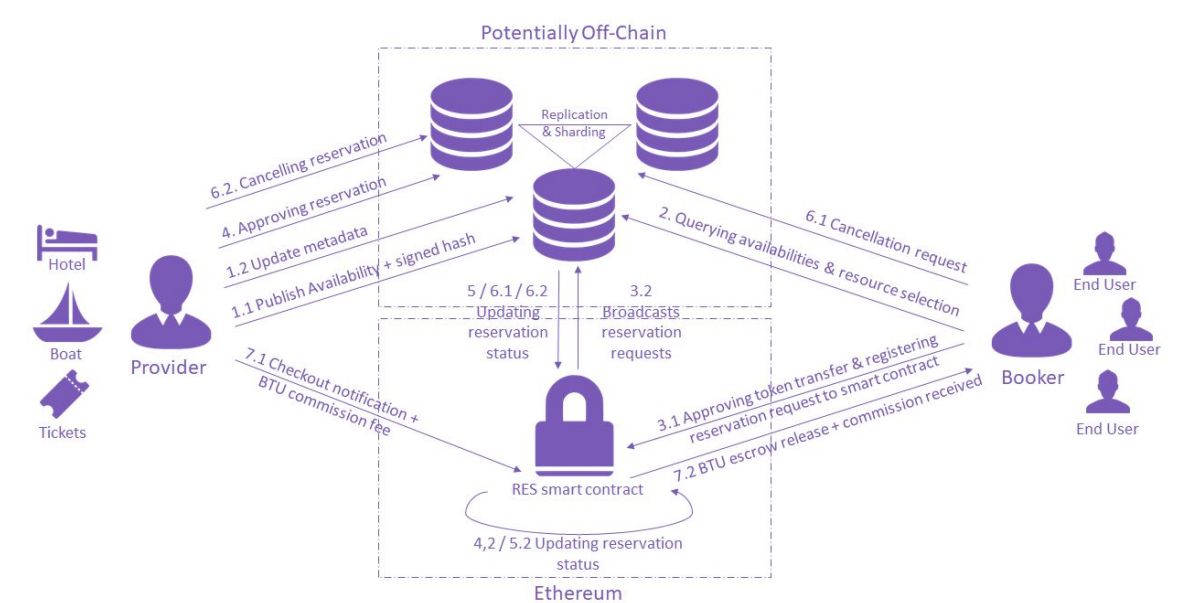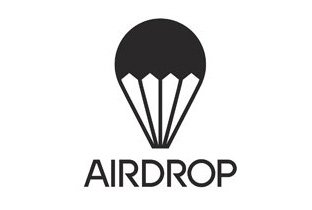Introduction
Let's go to continue this blog with other project. First of all, for who missed previous entry, what's a cryptomoney? To be fast and concise, it is a digital medium of exchange. And the next question would be... What's your use? It is also easy to guarantee the security, integrity and balance of your financial statements by means of a network of agents (segmented file transfer or multisource file transfer) that verify (untrust) each other called miners, which are, for the most part, general public and actively protect the network (the web) by maintaining a high rate of algorithm processing, in order to have the opportunity to receive a small tip, which is distributed randomly.
Today there are thousands of coins on the market, already in operation, such as Bitcoin, Ethereum, Ripple, etc., but there are many thousands more that are about to leave. The former are called cryptocurrencies and can be purchased on many websites such as Coinbase, Localbitcoins, Kraken, etc. The others are the so-called ICO's (Initial Coin Offering), which can be obtained with significant discounts and price runs through small contracts and transfers through Ethereum. But there exist others those that have just been born, which are not even in the ICO phase, which launch campaigns to attract the public attention, these are the Airdrops. With this, we can get thousands of coins for free. I emphasize these because it's a way to win cryptocoins even if the market is as it is. Through this way you never lose money.
However, not all of them are worth it. We have to read well what each project is dedicated to, what is its whitepaper, its qualified advisors, etc. As we all know, blockchain technology has gained popularity due to the hype about cryptocurrencies which has shaken many startups to launch their own cryptocurrencies even without convincing fundamentals. This trend has emerged because new entrants have been more agile in adopting emerging technologies compared to incumbents who are hampered by legacy systems. However, this competitiveness and this advantage enjoyed by the new players may be short-lived, as no economies of scale are taken into account. For this reason, that is why I choose the best of them through an exhaustive study of the main characteristics.
For this reason, the project I am going to present you is Booking Token Unit (BTU) Protocol, the first decentralized reservation protocol to empower anyone to become a booking platform.
Presentation
Definition
As I said before, BTU Protocol (https://www.btu-protocol.com/e...) is a standardized basic component for any decentralized application (dApp) or website that wishes to implement reservation functions for its users. This standard also provides interoperability between the decentralized applications that incorporate it. The BTU protocol is currently under standardization in the Ethereum ecosystem as ERC-808 and BTU token will be an ERC20 token that executes the protocol. All platforms that implement the BTU protocol would benefit from a hybrid approach that combines an intelligent contract within the chain and software components outside the chain, providing greater scalability.
Goals
On the one hand, the main objective of the BTU Protocol Platform is to create a standardized decentralized open source reservation protocol along with reference implementations that can be exploited by participants in industries such as hospitality, travel, finance, health, retail, automotive and more. On the other hand, BTU token is created to encourage appropriate behaviors such as rewarding successful reservations and enforcing late cancellation and no-show policies.
How it works
Four components are involved in the BTU Protocol process: a provider, a booker, a reservation infrastructure and the RES smart contract.
| Component | Definition |
|---|---|
| Provider | The provider is an entity that provides its own resource or a third-party resource to be reserved |
| Booker | The booker is an entity that reserves the resource for itself or for a third party |
| Reserve infrastructure | The reserve infrastructure is the public plac" where providers can publish data on resource availability and where these resources can be reserved by reservists. |
| RES | RES is the intelligent implementation by contract of the decentralized standardized BTU protocol |
There are several steps involved in the BTU Protocol:
- Step 1: The sequence is started by a provider, who creates an availability offer. At any moment, the provider can update the resource metadata by broadcasting a new message.
- Step 2: Booker looks for a resource queries all resources matching his criteria and selects a resource he is willing to reserve.
- Step 3: Booker transmits the reservation request of resources to the reservation infrastructure adding all the information of the end user's profile outside the chain that may be necessary for the approval of the reservation.
- Step 4: Provider validates the reservation request and broadcasts the new status to “RESERVATION_CONFIRMED”.
- Step 5: RES smart contract updates the reservation status to “RESERVATION_CONFIRMED”.
- Step 6: This step is optional. On the one hand, the booker can cancel the reservation by issuing a cancellation request. This triggers a submission to the RES smart contract that empties the records for this resource. On the other hand, the provider can also cancel the reservation by transmitting a request for cancellation. In this case, it triggers a shipment to the RES smart contract that empties the records for this resource. RES smart contract is releasing the amount in custody to the booker.
- Step 7: Finally, booker notifies that the resource has been paid. The smart contract of RES releases the BTU in custody to the user in addition to a commission agreed by BTU.
In the below image, a representation of the whole sequence can be seen.
Benefits
Software and open-source block chain protocols, along with symbolic design backed by business strategy research and game theories, can provide new solutions to a large number of business problems. Specifically, BTU Protocol brings a free software kit for mass adoption standard protocol for sharing availabilities in an open network. Its protocol is well suited to the issues of hospitality and business travel. Moreover, it is a generic protocol that applies to many industries: restaurants, sporting events, exhibitions, concerts, car repair, industrial equipment and even cloud computing. For this reason, all applications that implement the BTU protocol would benefit from a hybrid system that combines an intelligent contract within the chain and software outside the chain that provide greater scalability. Besides, thanks to an open source protocol, a public and transparent inventory would considerably reduce barriers to entry in the online reservations markets. Finally, the platform implements a virtuous model that redistributes value among business actors
Roadmap
| Year | Event | |
|---|---|---|
| November 2017 | BTU Protocol presentation at DEVCON3 Unicorn P&P in Cancun | |
| January 2018 | EIP ERC-808 submission of the BTU Protocol | |
| February 2018 | Hackathon at the ETNA school | |
| March 2018 | Releasing the BTU Protocol MVP | |
| March 2018 | BTU Protocol presented at the Ethereum Community Conference | |
| April 2018 | BTU Protocol Token sale | |
| Earth - “Earth” release. Protocol fully onchain, RES smart contract, Demo dApp | |
| Q3 2018 | Mars- "Mars" release. Support to first platform based on BTU protocol, Booking infrastructure, Javascript SDK, Template dApp customizable to any industry | |
| Q1 2019 | Jupiter- "Jupiter" release. Support to more partners leveraging our booking infrastructure, SDK in Javascript, Java, Python, Go, Plugin for Wordpress, Drupal and other CMS | |
| Q2 2019 | Saturn - "Saturn" release. Integration of reputation system, Enhanced privacy features | |
| T4 2019 | Uranus - “Uranus” release. Implementation of a Cosmos Zone |
Airdrop
The project gives the opportunity to earn BTU tokens performing some social media tasks and doing simple steps from the bounty program explained into the Steemit page. Here (https://steemit.com/blockchain/@btuprotocol/btu-protocol-communication-bounty-program) you can access to the link in order to see what are the conditions to become an early BTU contributor and start acquiring tokens.
Doesn't that sound interesting? If you are interested in this airdrop or basically in the ICO, you can read their Whitepaper here (https://www.btu-protocol.com/p...). You can also stay tuned in their official Telegram group (http://t.me/BTUCommunity). I hope you liked the post and soon I'll send you new ones.
Token details
Token: BTU
Platform: Ethereum
Type: ERC20
Price in ICO: 1 BTU = 0.75 USD
Tokens for sale: 50,000,000
Team and Advisors
Author details
Telegram username: @clauming
Bitcointalk username: adriaparcerisas
Bitcointalk profile link: https://bitcointalk.org/index.php?action=profile;u=1870482
Ethereum address: 0xC6AB45541006D53D31E25b41c7d245c5Ad99BF71





Nice post and good Project. Cryptocurrencies are losing strength. But new important, relevant and interesting projects such this one explained are being developed. Do you think that it could avoid the final cryptocrash?
ResponEliminaOf course. If projects like this keep coming out, they will make the blockchain system more prominent, and gain more support to keep it going.
EliminaHello dear, very interesting Project, but what is the difference from other ICO projects with similar roadmap?
ResponEliminaCool!
ResponEliminaIt seems could be one of the most important ICO of 2018. You could add as benefits:
ResponElimina- The decreasing of %fees
- Loyalty points are platform or service specific
- End-user confidential information is at risk of large-scale hacks
- Complementary services offered are limited
Yes, thanks for the reply! Im agree with you
EliminaGreat
ResponEliminaDe los mejores que he visto! Hay que promocionar este tipo de proyectos
ResponElimina